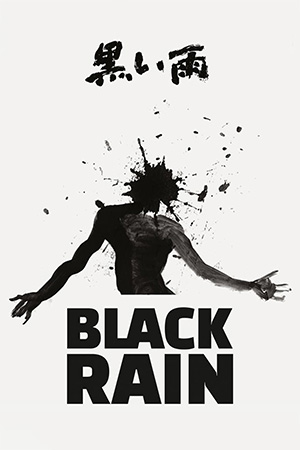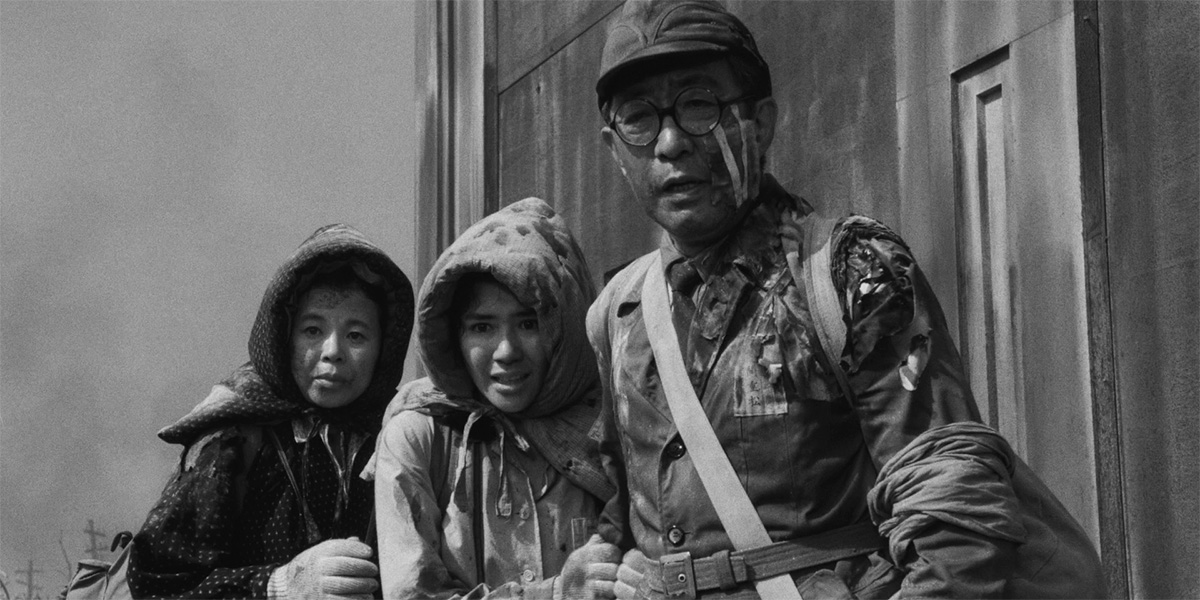While the horrors of an atomic bomb dropping on a city have long been examined by Western cinema, the only country that can, sadly, report on the effects accurately is Japan. It seems appropriate – and even more sobering – when Japanese cinema tackles the subject, as displayed here in Shohei Imamura’s ‘Black Rain’.
Yasuko lives in Hiroshima with uncle and auntie, and is preparing to move into the next stage of her life with probable marriage on the horizon. All of this changes on the 6th August 1945 when her city is devastated by an atomic bomb being dropped and she is caught in the sinister ‘black rain’ that falls down soon after. Managing to get to her family, Yasuko travels through the horrific landscape where blackened bodies are strewn everywhere and the smell of charred flesh fills the air. While she and her family survive, the effects continue as the years progress and she becomes one of the hibakusha or those forever scarred by the event. This not only affects her physically, but also emotionally as all of her prospects of marriage are permanently ended. Her uncle, meanwhile, tries to hold his family together while also watching friends die of the long term results of the radiation.
There were two films released in 1989 called ‘Black Rain’ and they couldn’t be more different from each other. While the Ridley Scott thriller deals with the shiny new electronic wonderland of late 80s Japan, Imamura’s shows the country on its knees and how the ordinary people try to cope. That is also the film’s strength; it is not political, nor is it partisan, it only shows what is universally true of war and that is that the innocent suffer. It means that, while the circumstances are different everywhere, it is a movie that will resonate with people around the world. Imamura doesn’t hold back on showing the imagery of the aftermath, though the sights are never gratuitous or needless. The black and white photography might dilute the harshness of the images very slightly, but it also gives a grimly surreal look to the horror. It perfectly highlights that ordinariness of such an apocalypse, the fact that despite something beyond comprehension occurring, the people have to somehow accept the madness to survive.
‘Black Rain’ excels in its examination of Japanese society, especially in the post-Atomic age. The bomb almost becomes the end of a civilisation as the traditional customs and expectations change forever. Seeing Yasuko denied an ordinary life because of events outside of her control is intensely powerful, though Imamura doesn’t judge those who reject her harshly; everyone becomes a victim of the situation in their own way. ‘Black Rain’ is powerful, almost exhausting but essential viewing. Intertwining the story with real life accounts of the bombing adds another layer to this formidable work and is a reminder of the scars left on the Japanese psyche.
- Mission Kiss And Kill - December 7, 2025
- Yojimbo - November 24, 2025
- The Five Venoms - November 9, 2025






